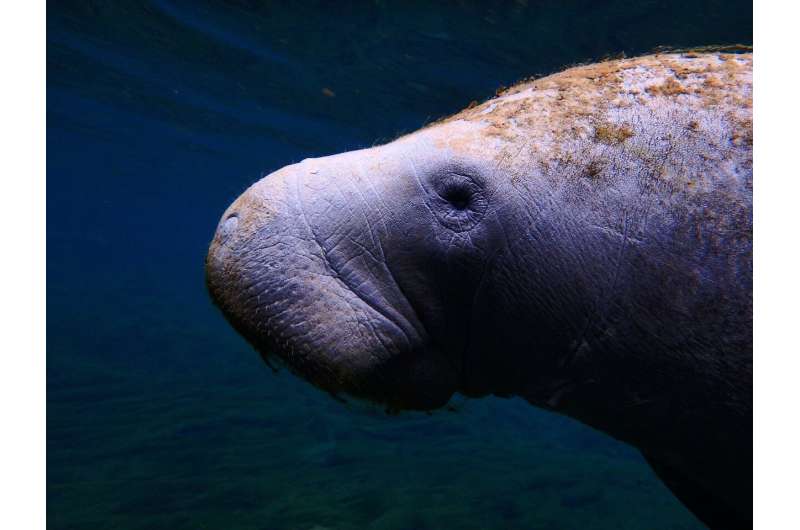Credit: Pixabay/CC0 Public Domain
Environmental groups took the first step Monday toward suing the Environmental Protection Agency over water pollution that caused a catastrophic number of manatee deaths this year from starvation.
More than 1,000 manatees died in Florida in 2021, most from starvation around the Indian River Lagoon, where heavy concentrations of algae wiped out seagrass that serves as their main source of food.
"It is painfully clear that Florida isn't doing what's necessary to control the sewage and fertilizer pollution that's wrecking the Indian River Lagoon," said Elizabeth Forsyth, a lawyer for Earthjustice, the environmental law firm representing the three groups, in a statement. "It's time for EPA to step in and enforce the Clean Water Act for the sake of the manatees and all the other creatures and people that rely on Florida's waterways."
The huge number of deaths led state and federal wildlife agencies to initiate a plan to feed manatees, an unprecedented step that illustrated the gravity of their peril. But environmental groups call feeding a stop-gap measure that fails to address the underlying threat polluted water causes to their natural food supply of seagrass.
They blame weak water quality standards imposed by the state of Florida with the approval of the EPA, which allows pollution from fertilizers, septic systems and sewage treatment plants to wash into the lagoon. The pollution stimulates the growth of algae that shades out and kills seagrass.
The Center for Biological Diversity, Save the Manatee Club, and Defenders of Wildlife filed with the EPA a 60-day notice of intent to sue, a legal step typically required before a lawsuit against a federal agency.
Jaclyn Lopez, Florida director of the Center for Biological Diversity, said that EPA can avoid the filing of a lawsuit by reopening consultations with the U.S. Fish and Wildlife Service, acknowledging that the water quality standards were inadequate and starting work on new standards.
"It's disgraceful that hundreds of manatees have died as a direct result of regulators' failure to protect our water quality," she said. "The Indian River Lagoon is an ecological wonder that supports not just manatees, but green sea turtles, snook, tarpon and a stunning diversity of marine life. The mass death of these manatees, which was completely preventable, makes it clear just how critical it is that the EPA take swift action to protect the vibrant ecosystem they live in before it's too late."
©2021 South Florida Sun Sentinel.
Distributed by Tribune Content Agency, LLC.





















